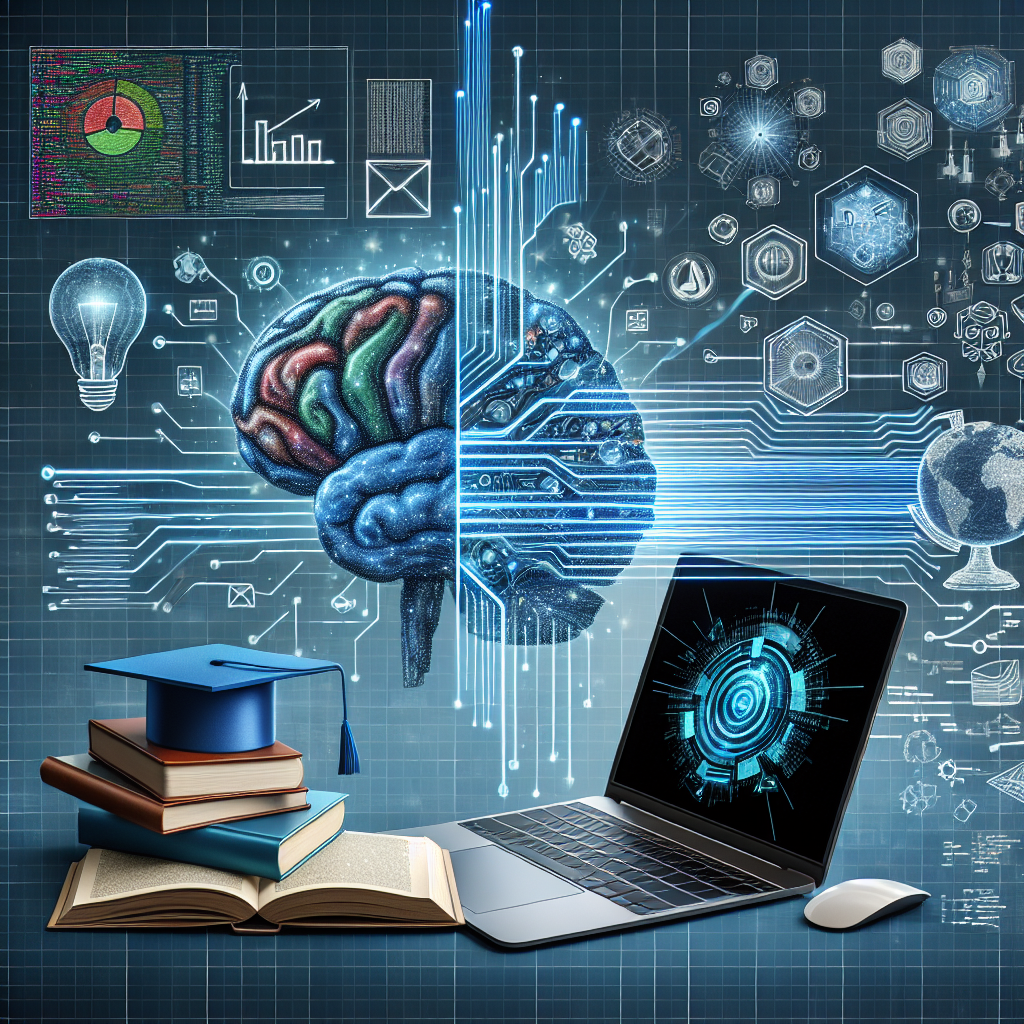Artificial Intelligence (AI) and Machine Learning are revolutionizing the way we approach personalized learning. With the power of AI algorithms, educators are able to tailor learning experiences to individual students, providing them with a personalized and adaptive educational journey.
AI in education is not a new concept, but recent advancements in technology have made it more accessible and effective than ever before. By harnessing the power of data analytics, machine learning, and natural language processing, AI can analyze student performance, predict learning patterns, and provide personalized feedback in real-time.
Personalized learning is essential for addressing the diverse needs of students, as every student learns at their own pace and in their own way. Traditional one-size-fits-all teaching methods often leave students behind or fail to challenge those who excel. AI-based personalized learning platforms offer a solution to this problem by adapting to the individual needs of each student, providing them with the right resources, support, and guidance to succeed.
One of the key benefits of personalized learning through AI is the ability to cater to different learning styles and preferences. Some students may learn best through visual aids, while others may prefer auditory or hands-on activities. AI algorithms can analyze student behavior and preferences to deliver content in a way that is most effective for each individual student.
Another advantage of AI in personalized learning is the ability to provide instant feedback and assessment. Traditional assessment methods such as exams and quizzes may not accurately reflect a student’s understanding or progress. AI-based platforms can track student performance in real-time, identify areas of weakness, and provide targeted feedback to help students improve.
Furthermore, AI can help educators identify at-risk students who may be struggling academically or emotionally. By analyzing data such as attendance, engagement, and performance, AI algorithms can flag students who may need additional support or intervention. This proactive approach to student support can help prevent academic failure and improve overall student outcomes.
AI and Machine Learning are also transforming the role of teachers in the classroom. Rather than spending hours grading papers or creating lesson plans, educators can leverage AI-powered tools to automate routine tasks and focus on individualized instruction and support. AI can assist teachers in identifying gaps in student understanding, recommending personalized learning resources, and tracking student progress over time.
In addition to personalized learning in traditional classrooms, AI is also revolutionizing online education and e-learning platforms. With the rise of remote learning and virtual classrooms, AI algorithms can provide personalized recommendations, adaptive learning paths, and interactive simulations to engage students in a digital environment. This personalized approach to online education can help students stay motivated, focused, and on track to achieve their learning goals.
Despite the many benefits of AI and Machine Learning in personalized learning, there are also challenges and concerns that must be addressed. One of the main challenges is the potential for bias in AI algorithms, which can perpetuate inequalities and discrimination in education. It is essential for developers and educators to ensure that AI systems are trained on diverse and representative data sets to avoid bias and promote fairness in personalized learning.
Another concern is the issue of data privacy and security in AI-powered education platforms. As AI algorithms collect and analyze large amounts of student data, there is a risk of unauthorized access, misuse, or breaches of sensitive information. Educators and developers must prioritize data protection and compliance with privacy regulations to ensure the safety and security of student data in personalized learning environments.
In conclusion, AI and Machine Learning are shaping the future of personalized learning by providing students with customized, adaptive, and engaging educational experiences. By leveraging the power of AI algorithms, educators can cater to individual student needs, improve learning outcomes, and empower students to reach their full potential. As technology continues to advance, personalized learning through AI will play an increasingly important role in transforming education and preparing students for success in the digital age.
FAQs:
1. What is personalized learning?
Personalized learning is an educational approach that tailors instruction, content, and pace to meet the individual needs and preferences of each student. By providing customized learning experiences, personalized learning aims to improve student engagement, motivation, and achievement.
2. How does AI enable personalized learning?
AI algorithms analyze student data, behavior, and performance to create personalized learning paths, recommend resources, and provide targeted feedback. By harnessing the power of data analytics and machine learning, educators can deliver adaptive and individualized instruction to students.
3. What are the benefits of personalized learning through AI?
Some benefits of personalized learning through AI include catering to different learning styles, providing instant feedback and assessment, identifying at-risk students, transforming the role of teachers, and enhancing online education platforms. Personalized learning through AI can improve student outcomes, engagement, and motivation.
4. What are the challenges of AI in personalized learning?
Challenges of AI in personalized learning include bias in algorithms, data privacy and security concerns, and the need for ongoing training and support for educators. It is important for developers and educators to address these challenges to ensure that AI-powered personalized learning is effective, equitable, and ethical.

